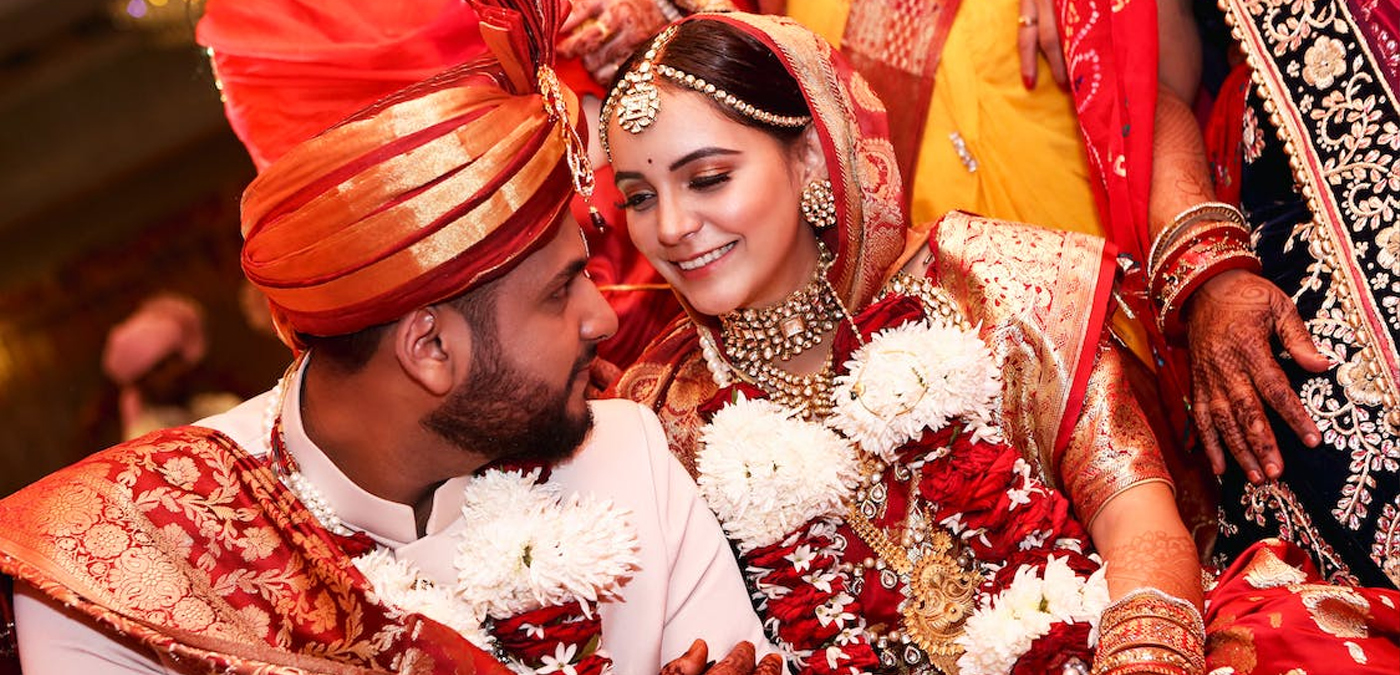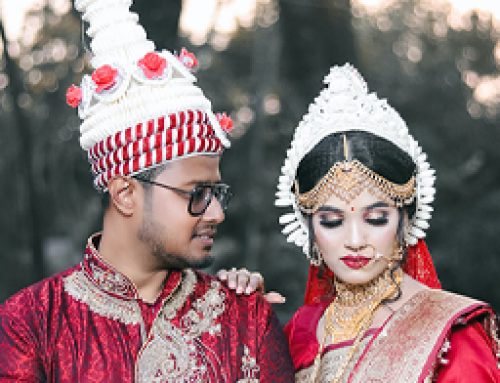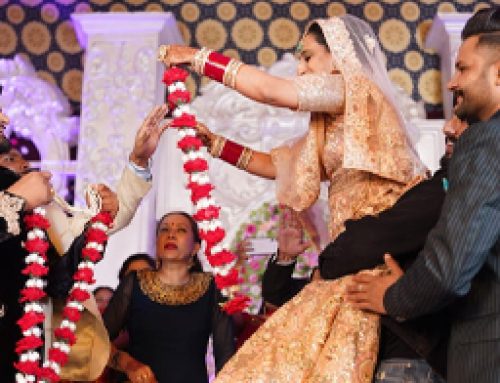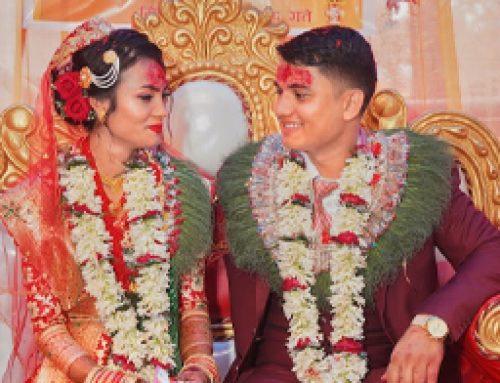Gujarati Wedding Traditions & Rituals
Gujarati weddings are vibrant, colorful, and filled with rich traditions and rituals that reflect the culture and customs of Gujarat, a western state of India. These weddings are known for their grandeur, opulence, and deep-rooted traditions that have been passed down through generations. Let’s explore the various traditions and customs that make Gujarati weddings unique:

Pre-Wedding Rituals:
- Chandlo Matli: This ritual marks the official announcement of the wedding. The groom’s family visits the bride’s home with gifts, including a silver or gold pendant (chandlo) that is placed on the bride’s forehead. This signifies the acceptance of the marriage proposal.
- Ganesh Puja: A puja (prayer ceremony) is performed to seek the blessings of Lord Ganesh, the remover of obstacles and the harbinger of good fortune, before the wedding festivities commence. The puja is conducted at both the bride’s and groom’s homes.
- Mandap Mahurat: The mandap mahurat is a ceremony where the wedding venue is sanctified. It involves a puja performed by the priest to invoke blessings and ensure an auspicious start to the wedding rituals.
- Griha Shanti: This ritual involves a prayer ceremony conducted at the homes of the bride and groom to seek the blessings of the family deities and ancestors for a harmonious and peaceful wedding.
Wedding Day Rituals:
- Varghodo: The groom arrives at the wedding venue on a decorated horse or in a procession accompanied by his family and friends. The bride’s family welcomes the groom with joy and traditional music and dances.
- Ponkhana: The groom is led to the mandap (wedding canopy) where the bride’s mother performs an arti (ritual of waving a lamp) to ward off evil spirits and bless the groom.
- Jaimala: The bride and groom exchange garlands as a symbol of acceptance and union. This is followed by showering the couple with rose petals and blessings.
- Kanyadaan: The bride’s father performs the Kanyadaan, where he gives away his daughter to the groom. This ritual represents the formal handing over of responsibility and the bride’s acceptance into the groom’s family.
- Hasta Melap: The bride and groom hold each other’s hands while the priest ties their hands together with a sacred thread, symbolizing their eternal bond and union. This is followed by recitation of Vedic hymns and blessings.
- Mangal Pheras: The couple walks around the sacred fire, taking seven rounds (pheras) while making marital vows and promises to each other. Each round represents a sacred vow, such as loyalty, love, and support.
- Saptapadi: The bride and groom take seven steps together, symbolizing the seven vows of marriage. With each step, they express their commitment and responsibilities towards each other.
- Sindoor and Mangalsutra: The groom applies sindoor (vermilion) on the bride’s hair parting, symbolizing her married status. He also places a mangalsutra (sacred necklace) around her neck, which represents their marital bond and commitment.
- Ashirvad: The newlywed couple seeks blessings from their elders, who shower them with rice, flowers, and good wishes for a prosperous married life.
Post-Wedding Rituals:
- Vidai: The bride bids farewell to her parental home and family. It is an emotional moment as she leaves with the groom to start her new life. The family members bless the couple and express their love and good wishes.
- Ghar Nu Laxmi: Upon the couple’s arrival at the groom’s home, the groom’s mother welcomes them with an arti and performs a ritual called Ghar Nu Laxmi. She places a vessel filled with rice at the entrance, symbolizing the arrival of the goddess of wealth and prosperity into their home.
- Aeki Beki: This lighthearted game is played by the couple. Several items are placed in a pot of water, and the couple competes to find them. It is believed that the winner will have the upper hand in their marital relationship.
- Reception: A grand reception is held to celebrate the union of the couple. Family and friends come together to bless the newlyweds, exchange gifts, enjoy sumptuous meals, and revel in joyous festivities.
Gujarati weddings ceremonies are a blend of rituals, traditions, vibrant attire, delectable cuisine, and exuberant celebrations. They showcase the cultural richness and deep-rooted customs of the Gujarati community. These weddings create lasting memories and serve as a testament to the strong familial bonds and the sanctity of marriage within the Gujarati culture.
Elegant Venue To Plan Your Gujarati Wedding in Melbourne
Seasons5 offers a vibrant atmosphere and Indian wedding venues along with dedicated staff to help you celebrate your Gujarati wedding. Nestled in the lush greenery of Point Cook, Melbourne, we’ve got luxurious accommodations too. Our grand ballroom, gazebo, private lake, and outdoor venues make for a picturesque scene for wedding photos.
Crafted with local and fresh ingredients, our Cinnamon Bay Restaurant offers delicious meals for wedding celebrations. You can also enjoy our day spa to relax and rejuvenate. Feel free to call us on 03 8376 5300 or drop an email at contact@seasons5.com for more information.








